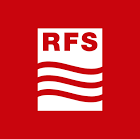RFS 2024 Trends – Part One
Shift in Focus for the Connectivity Industry
2023 was a turbulent year for the communications industry, with many in the sector needing to redefine their focus to survive. 2024 will see this trend continue, with companies needing to consolidate their offerings and provide clear value propositions to customers to remain competitive.
As part of the effort to meet customer needs and keep a competitive edge, sustainability will also be a big focus for 2024. Sustainability has been increasingly high on the priority list of procurement teams over the past few years, it will now be a major factor when making infrastructure decisions. The need for green is growing, and with every business looking to reduce its environmental impact, equipment designers must put green at the heart of their R&D processes.
This needs to go beyond ‘greenwashing’ where sustainability efforts do not extend beyond marketing stories and focus on delivering solutions that are ‘Green by design.’ The R&D teams at RFS already have several ‘Green by Design’ solutions that make efficient use of raw materials, have low power consumption to reduce energy OPEX, and employ green manufacturing processes. We look forward to continuing our efforts to deliver end-to-end sustainability in 2024.
Monika Maurer, CEO at RFS
Retrofitting Smart Solutions
One of the big developments we will see in APAC over 2024 will be a huge uplift in the number of smart factories. Although there will undoubtedly be a handful of state-of-the-art facilities designed with Industry 4.0 at their heart, most manufacturers will not be able to build smart factories from the ground up. They instead face the challenge of retrofitting existing facilities.
Over the past few years, RFS has worked with TSMC, the world leader in semiconductor manufacturing, to deliver full site coverage to its existing facilities. We’ll be continuing to extend our expertise in this area, working with a greater number of manufacturers as they look to address similar connectivity challenges in 2024 and beyond.
We will also be making significant investments in our own manufacturing facilities both in Suzhou and Hannover to ensure we continue to deliver best-in-class, cutting-edge solutions for our customers.
Alec Wang, VP Sales & Business Unit Cables at RFS
Meeting Growing Backhaul Demand
With the increasing appetite for data showing no signs of slowing down, it is crucial that the backhaul infrastructure being rolled out keeps pace. As 5G is established worldwide and with 6G on the horizon, macro site operators will need to employ a combination of microwave and fiber to fulfill backhaul capacity requirements.
2024 will see a need for a variety of configurations to meet the differing needs of each macro site. From space-efficient solutions to minimize site footprints to elliptical waveguides to enhance the performance of microwave backhaul antennas and radio links over long distances, RFS can support multiple backhaul setups.
Axel Schroeder, Head of Global Vertical Markets at RFS
To read more from the RFS team on 2024 trends, you can find
part two here


